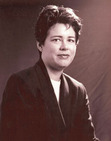Don’t Warm Up
How do you launch your story?
Do you think it begins with the first word you write on page one?
Do you think it begins when the protagonist is thoroughly introduced to readers?
Do you think it begins when trouble appears, cloudlike, on the protagonist’s horizon?
Or, do you just start typing and hope for the best?
Many years ago, when I was a teenager in Driver’s Ed., my driving instructor tried to teach us to merge and turn our vehicles more assertively by saying, “Hit that car! Try to hit that car! Move!”
I don’t think it was an effective way to teach tentative teens. I understood what he was trying to do to us psychologically, but the concept of intentional collision so alarmed me that I tended to freeze up rather than mash down the accelerator.
Now, as I teach my students how to get their stories moving, I experience frustration similar to what my driving instructor must have gone through.
Start the story on page one!
Make your words count. Make your character introduction count. Get something happening that is pertinent to the plot and start advancing it.
Know what your protagonist wants on page one!
Most writers dawdle in the opening when they haven’t a clue of what their main character’s goal is. You can’t arrive if you don’t know where you’re going.
Make sure your protagonist is in trouble on page one!
What are you waiting for? An invitation? Student writers meet with me all the time to justify why nothing is happening, storywise, for the first eleven pages. “There’s all this background the reader needs to understand.”
Readers don’t need to understand anything except what’s happening right now!
In other words, when I pick up a book to read, I don’t care how the protagonist came to be trapped in a dead-end canyon with hostile mutants closing in. I just want to see if the protagonist is going to find a weapon and survive the encounter.
The back story can be explained later. Much later. Opening with an info dump means Wally Writer is infatuated with his little story world but hasn’t gotten around yet to plotting. Readers seldom have patience to wait while Wally pulls his act together.
It’s like asking readers to read a rough draft instead of the polished version.
Bring in an antagonist fast.
“Oh no!” my student writer protests. “I want the reveal to be a surprise later.”
My response is usually, “Why?”
What are readers to do in the meantime, waiting for the big plot twist? Probably they’re going to read someone else like Dick Francis, or John D. MacDonald, or Agatha Christie, or Robert Crais.
I’m not saying that you mustn’t conceal some shadowy villains from being identified, but they need to be present. (Even J.K. Rowling injects Voldemort early on.)
Story trouble and conflict need to come from a source. They don’t just drop from the sky as random bad luck. The quicker an opponent appears–say, no later than page two–the quicker your story will get on track . . . and stay there.
C. Aubrey Hall's Blog
- C. Aubrey Hall's profile
- 7 followers




